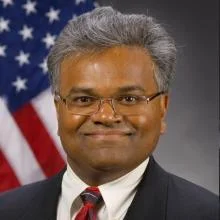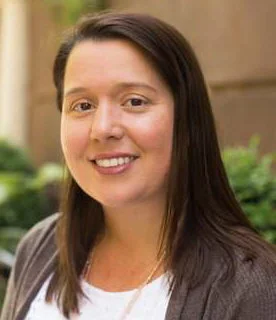Design Justice and zero waste conference
In May 2018, The Tishman Center and GAIA (Global Alliance for Incinerator Alternatives) held the Design, Justice & Zero Waste: Exploring Pathways to a Circular Economy conference and research collaborative. The discussion included a global audience with innovative and creative eco-minded collaborators including practitioners, researchers, advocates and activists.
As the world’s population increasingly urbanizes and the climate crisis worsens, the global economy risks breaching planetary boundaries with potentially catastrophic consequences if we continue to produce and consume at levels set by western standards.
Frontline communities and workers in waste, manufacturing and distribution face disproportionate impacts from environmental degradation and extractive and exploitative industry practices. The conference focused on how issues of production, consumption and waste impact environmental justice communities, workers and vulnerable populations.
By advancing a circular economy, we can reduce often-overlooked sources of significant greenhouse gas (GHG) emissions, such as those from the supply chain of the manufacturing sector. Reducing consumer and industrial waste will be instrumental in lowering national GHG emissions and could help state and local governments meet emission targets set by the Paris Climate Accords.
The goal of the conference was to bring together experts from around the world and a variety of fields to share and showcase innovative designs, advocacy campaigns and scholarly research across this often siloed field. Designers, architects, business representatives and activists came together to discuss the diverse parts of a circular economy. Below list the featured speakers as well as recorded footage from the conference.
Special thanks to our sponsor
Featured Speakers
Annie Leonard
Keynote Speaker, Executive Director, Greenpeace USA, activist, proponent of sustainability and critic of consumerism. Leonard has over two decades of experience investigating and explaining the environmental and social impacts of our stuff: where it comes from, how it gets to us, and where it goes after we get rid of it. Her film, The Story of Stuff, blossomed into The Story of Stuff Project, which works to empower people around the globe to fight for a more sustainable and just future.
Leonard currently serves on the boards of Wallace Global Fund, Ben & Jerry’s Ice Cream, Public Citizen, and the Democracy Initiative and has previously served on the boards of the Grassroots Recycling Network, GAIA, the Environmental Health Fund, Global Greengrants India, Greenpeace India, and the International Forum on Globalization. She earned her undergraduate degree at Barnard College, Columbia University and has a Masters in City and Regional Planning from Cornell University. During Leonard's tenure at Greenpeace, she was arrested for protesting a business that was exporting hazardous waste to South Africa under the apartheid regime, and dumping it in a black community.
Dr. Mathy Stanislaus
Circular Economy Fellow - World Resources Institute and Senior Advisor - Platform for Accelerating Circular Economy (World Economic Forum). Previously, Dr. Stanislaus served as Assistant Administrator in the USEPA’s Office of Land and Emergency Management, where he led programs around revitalizing communities through the cleanup and redevelopment of contaminated sites.
As a long-term board member at the New York City Environmental Justice Alliance, Mathy Stanislaus assisted community-based organizations addressing environmental justice issues. He is a chemical engineer and environmental lawyer with over 20 years of experience in the private and public sectors. In 2009, President Barack Obama nominated Mr. Stanislaus as Assistant Administrator in EPA’s Office of Land and Emergency Management (OLEM). He was the longest-serving person in that position. As Assistant Administrator for OLEM, Mr. Stanislaus led EPA’s programs that revitalize communities through the cleanup and redevelopment of contaminated sites under Superfund, Brownfields, and Resources Conservation and Recovery Act (RCRA) programs.
joel edwin towers
Executive Dean of Parsons School of Design. From 2007-2009 Towers was the Dean of the School of Design Strategies at Parsons and Associate Professor of Architecture and Sustainable Design at Parsons. SDS houses Parsons' programs in Design and Management, Foundation, Integrated Design, as well as new initiatives in environmental and sustainable design, urban design, and transdisciplinary design.
Towers was the first Director of the Tishman Environment and Design Center and the Associate Provost for Environmental Studies at the university. Towers first came to Parsons in 2002 as the Director of Sustainable Design and Urban Ecology. Towers is a founding partner [1992] of SR+T Architects. He received a B.S. in Architecture from the University of Michigan School of Architecture and a Master of Architecture from Columbia University. Towers' focus on ecological issues and their relationship to both design conceptualization and construction methodology underlies his theoretical research and his teaching. It is also central in the work of SR+T. Towers was previously a member of the faculty of the Graduate School of Architecture at Columbia University where he taught advanced architecture and urban design studios and developed and taught a seminar exploring critical ecologies and environmentally reflexive architecture.
Ana I. Baptista
Ana is Chair of the Environmental Policy and Sustainability Management program and an Assistant Professor of Professional Practice. She also serves as the Associate Director for the Tishman Environment & Design Center (TEDC) at The New School.
Ana's research and professional practice focus on environmental and climate justice. She works directly with impacted communities and coalitions to advance environmental justice policies, zero waste systems, climate justice and resiliency plans, cumulative impacts tools, and mitigation strategies tied to goods movement industries. Her current research focuses on the use of municipal and state land use and zoning tools to support environmental justice goals and address cumulative environmental impacts in disproportionately impacted communities. Her research extends to issues related to environmental and health impacts of the global goods movement in seaport cities; zero waste and anti-incineration policies that can help cities transform their relationship to waste; just transition and community based resilience planning efforts; urban air pollution mitigation policies and community science air monitoring protocols; community-engaged scholarship and participatory action research methods.






